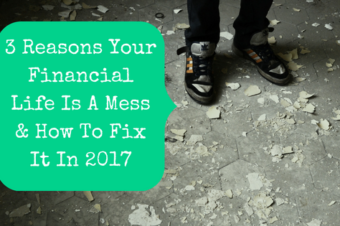
We receive so many seemingly important papers every day that it is hard to know which ones to keep and which ones can be tossed. Here is a list of various documents and how long they need to be held.
This past week I was back in San Diego because my father was hospitalized and diagnosed with terminal cancer. His main goal with his remaining time is to get his affairs in order so he doesn’t leave his kids with a huge mess to clean up. (Thank you, Dad!)
He knows what it’s like to clean up a mess when someone passes. My grandfather was a hoarder and kept every single piece of paper that ever passed through his fingers.
You think I’m exaggerating? Take a look at this picture.  Yes, that’s a receipt for a pen from 1965. It finally got tossed out (by me) last week. After 51 years.
Yes, that’s a receipt for a pen from 1965. It finally got tossed out (by me) last week. After 51 years.
My grandfather kept so much stuff that it took my dad over 2 years to find the pink slip for his car after he died. Boxes and boxes full of papers and magazines.
Even though a lot of things are electronic these days, we still get inundated with papers. All of them seem important, but which ones do we really need to keep? And for how long?
Documents To Keep Forever
My grandpa wasn’t completely wrong. There are some things that should be kept forever. These are them:
- Birth certificates
- Marriage certificates
- Death certificates
- Social security cards
- Military discharge papers
- Divorce decrees
- IRS Form 4361
- Defined benefit plan documents
- Estate planning documents
- Life insurance policies
- Inventory of safe deposit box & location information
- ID cards
- Passports
- Business license
- Will
- Living will/advanced directive
- Power of attorney
- IRA contribution records if nondeductible, to show that you have already paid taxes on the money
These are all important documents that are a hassle to replace. They should be kept somewhere safe, like a waterproof and fireproof box or a safe.
Documents To Keep Over A Year
There are a number of documents that are important to hang on to but can be disposed of eventually.
- Tax returns & supporting documents- These need to be kept at least 7 years, which is the statute of limitations for the IRS. Some people recommend keeping the returns themselves forever as a record of your financial history.
- Home purchase, sale & improvement documents- These should be kept 6 years after the home is sold.
These documents only need to be kept while they are relevant to you. Once you sell the item they pertain to, you no longer need them:
- Vehicle titles & loan documents
- House deeds & loan documents
- Warranty documents & receipts
- Investment purchase confirmations or annual statement if it includes cost basis and holding information
- Loan documents (until loan is paid off)
Documents To Keep A Year Or Less
Some papers you can get rid of quickly, which is nice if you keep up with it.
- Bank receipts & deposit slips- Only keep them until you reconcile them with your statement.
- Bills- Only keep them until their payment clears. For large ticket items, it is wise to keep the bill as long as you have the item, in order to prove value for insurance in case of loss or damage.
- Magazines- Read them and toss them. Rip out a page or two if you need to, but no one ever goes back to read the entire thing again.
These documents only need to be kept one year:
- Pay stubs
- Health explanation of benefits
- Credit card statements (unless they are tax-related)
- Bank statements
- Medical records & bills (1 year after payment)
With these things you only need to keep the most recent copy:
- Annually renewing insurance policies
- Social Security statement
- Investment statements
- Retirement plan statement (401(k), IRA, etc.)
Disposing Of Documents
Though it may be tempting to just throw everything in the recycling bin, you need to be careful with your personal information to protect yourself from identity theft. You should shred anything with your name, address, phone number, Social Security number or bank account information. You should also shred all expired credit cards, passports, and IDs.
Now you have the knowledge to get your papers in order and climb out from under that pile of old documents. Go get your life organized!


